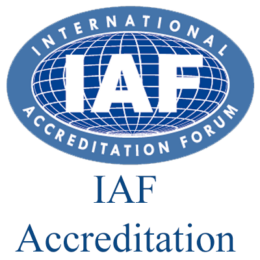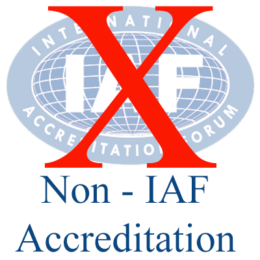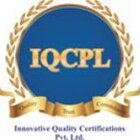
ISO/IEC 27001:2022
Information Security Management System (ISMS)
ISO/IEC 27001:2022 is the latest version of the globally recognized standard for Information Security Management Systems (ISMS). It provides a structured framework for organizations to protect sensitive data, manage cybersecurity risks, and ensure business continuity. The standard applies to businesses of all sizes and industries, helping them safeguard information assets against cyber threats, data breaches, and unauthorized access.
Benefits - Quality Management System offers
Connect with Us today
About
ISO/IEC 27001:2022 – Information Security Management System (ISMS)
ISO/IEC 27001:2022 is the internationally recognized standard for Information Security Management Systems (ISMS). It provides a structured framework for organizations to protect sensitive information, manage cybersecurity risks, and ensure business continuity. The standard applies to businesses of all sizes and industries, helping them safeguard data assets against cyber threats, unauthorized access, and breaches.
Clauses of ISO/IEC 27001:2022
Like ISO 9001:2015, ISO/IEC 27001:2022 follows a structured framework to ensure a systematic approach to information security management. The key clauses include:
Clause 1: Scope – Defines the purpose and applicability of the standard for managing information security.
Clause 2: Normative References – Lists supporting standards referenced in ISO/IEC 27001.
Clause 3: Terms and Definitions – Provides key terms related to information security, risk management, and compliance.
Clause 4: Context of the Organization – Focuses on understanding internal and external factors affecting information security management.
Clause 5: Leadership – Emphasizes top management commitment to information security, policy development, and compliance.
Clause 6: Planning – Covers risk assessment, security objectives, and implementation strategies.
Clause 7: Support – Includes resource allocation, staff awareness, communication, and security documentation.
Clause 8: Operation – Focuses on security controls, incident response, and risk mitigation measures.
Clause 9: Performance Evaluation – Involves security audits, monitoring, and continuous assessment of information security measures.
Clause 10: Improvement – Ensures continuous enhancement of security controls, incident handling, and compliance strategies.
This standard integrates seamlessly with ISO 9001 (Quality Management) and ISO 22301 (Business Continuity), ensuring organizations maintain a robust security posture while enhancing operational efficiency.
Would you like this content tailored for a brochure, website, or training material?
-
-
Enhanced Data Protection – Safeguards sensitive company, customer, and employee data against cyber threats, breaches, and unauthorized access.
-
Regulatory Compliance – Ensures adherence to global data protection laws such as GDPR, HIPAA, and other cybersecurity regulations.
-
Risk Management & Mitigation – Identifies, assesses, and mitigates security threats, reducing potential vulnerabilities in IT systems and processes.
-
Business Continuity & Resilience – Helps organizations prepare for and respond to security incidents, ensuring minimal downtime and operational disruptions.
-
Increased Customer & Stakeholder Trust – Demonstrates a commitment to information security, strengthening confidence among clients, investors, and partners.
-
Competitive Advantage – Differentiates businesses in the market by showcasing compliance with internationally recognized security standards.
-
Operational Efficiency – Streamlines security policies and procedures, leading to better resource allocation, fewer security incidents, and cost savings.
-
Continuous Improvement – Promotes ongoing monitoring, audits, and updates to security controls, keeping organizations ahead of emerging cybersecurity threats.
Would you like this content formatted for a brochure, website, or internal training materials?
-
There’s a global federation for all the accreditation bodies worldwide, that regulates these accreditation bodies, which is known as International Accreditation Forum or IAF. The task of IAF is to check any sort of negligence by an accreditation body while implementation of the quality specifications and carrying out the ISO certification process

I am text block. Click edit button to change this text. Lorem ipsum dolor sit amet, consectetur adipiscing elit. Ut elit tellus, luctus nec ullamcorper mattis, pulvinar dapibus leo.
I am text block. Click edit button to change this text. Lorem ipsum dolor sit amet, consectetur adipiscing elit. Ut elit tellus, luctus nec ullamcorper mattis, pulvinar dapibus leo.



















